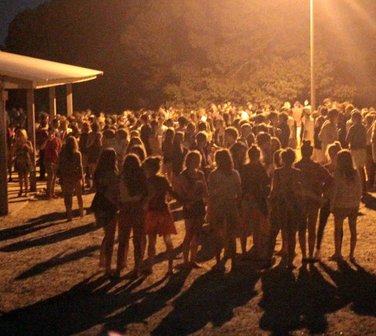This one’s for you Mum
Top 10 tips for stressed out mums.
From Ngala psychologist David Hilton.
1. Eat well.
2. Sleep. This can be difficult with babies, so sleep when you can. If you are having trouble getting your baby or child settled and off to sleep seek some help from expert services like Ngala.
3. Ask for help. If you need it, ask! Yes, it can be difficult to be assertive and put up your hand for help, but it is important to learn to do it. It could be asking for a friend or family member to put on a load of washing, make a meal or babysit. It’s just as important to learn to say no. Don’t take on too much and if people visit at inappropriate times, tell them you’ll need to reschedule.
4. Be realistic. There is a huge pressure, culturally, to be the perfect mother. Images on TV, movies and magazines are often idealised fantasies. It’s completely normal to have an untidy house when you have little kids.
5. Team parenting. Dads want to be more involved in their children’s lives and they can bring a different element to the parenting table. Dads can be a great circuit breaker when mums are stressed.
6. Get help. From family and friends. When it’s offered, take it. If it’s not, ask. You’ll be surprised because most friends and family will be more than happy to help.
7. Get more help. From your mothers group, child health nurse, parenting classes, the Ngala helpline on 9368 9368.
8. Talk to wise women. Talk to a woman who has been there before. A woman you trust and who is likely to give you sensible advice.
9. Time for yourself. Some days when you’re caring for an infant, you don’t even get a minute to go to the toilet in private, so it is especially important to find some “me” time. Arrange for the child to be cared for and go out for a coffee or a walk. Or when the child is asleep, find “me” time by painting your toenails, reading, or catching up with a friend.
10. Time for your relationship. You’ll need to plan for this, but try to arrange a night or day out together; without the kids. If you didn’t have the relationship, you wouldn’t have the kids; they are both special.
Stress danger times for mums and what to do: From Dr Joe Kosterich.
•Kids fighting while you’re on the computer:
Remove yourself from the situation. Walk away from the computer for five minutes, you won’t get anything done while you’re stressed.
•Kids arguing while you’re driving:
Pull over. Wait five minutes and drive on. The stationary car might even prompt the kids to stop shouting (if they’re old enough to understand).
•Getting the kids to school on time:
Routine is the key here. Be organised in advance; make lunches and have uniforms ready the night before. Get up 10 minutes earlier if you need to. Make the kids aware of the routine on school days so they learn to work within your expectations.
•End of the day when you’re fatigued.
Take time out from the event and take five deep breaths.
Dr Joe Kosterich's tips for when stress strikes:
•Ask yourself: How bad is it?
Is it a world-ending issue, or will life move on — it probably will.
•Take time out. Take five deep breaths.
•Get support. Have a support structure in place; have someone to call when stress strikes.
•Try not to scream and yell. Losing your cool only serves to arc up the tension.
•Stay on track. Don’t reach for a wine, smoke a cigarette or dive into the chocolate biscuits.
•Stay positive. Try not to feel sorry for yourself.
•Find a solution. When the stressful event passes, look back on what happened and see if you can find a way to ease similar stress in the future.
•Consider the kids. Some kids pick up on stress and can get anxious themselves. Try to deal with your stress levels without inflicting negative stress on your kids.
•Exercise, sleep, eat right. Even if you don’t have a lot of support, you can use services such as the creche at your local swimming pool for a nominal cost and swim laps for an hour.
•Get outside. Take the baby for a walk in the pram or the kids to the park to burn off some energy. You’ll also get some vitamin D from the sunshine and you’ll feel better for it.
Need help? Call Ngala’s free helpline on 9368 9368 or 1800 111 546 for country callers.
What to do when it’s all too much.
“Put your baby down in a safe place, like the cot, and walk away. Take a few deep breaths, have a glass of water, cry if you want. When you start to feel in control again, come back to your baby, ” Mr Hilton advised.
© The West Australian
More Lifestyle news at thewest.com.au









